European Commission priorities for 2024-2029. The view from Poland on energy and climate
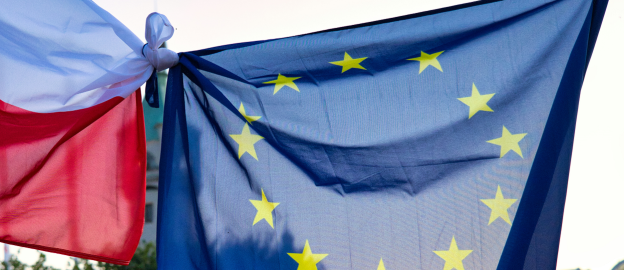
The upcoming European Parliament elections will open a new chapter in EU climate and energy policy. The new European Commission, which begins its 5-year term in the fall, will have to monitor the implementation of a wide range of files related to the ‘Fit for 55’ package and navigating the Union towards the 2050 goals by setting targets for 2040. It will also certainly propose a new political strategy, as the dynamics of the discussion in the EU is in a state of constant flux. From Poland’s perspective, what new priorities of the European Commission will be most important and gain support and interest?
Read More
European Commission priorities for 2024-2029. The view from Poland on energy and climate
The upcoming European Parliament elections will open a new chapter in EU climate and energy policy. The new European Commission, which begins its 5-year term in the fall, will have to monitor the implementation of a wide range of files related to the ‘Fit for 55’ package and navigating the Union towards the 2050 goals by setting targets for 2040. It will also certainly propose a new political strategy, as the dynamics of the discussion in the EU is in a state of constant flux. From Poland’s perspective, what new priorities of the European Commission will be most important and gain support and interest?
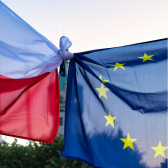
Understanding EU’s and Poland’s RES Goals

In October 2023, the European Union adopted a revision of the directive promoting the development of renewable energy, setting new, higher targets for the community. In Forum Enegrii's report "Understanding EU's and Poland's Renewable Energy Goals", we analyze how the EU targets translate into the realities of Poland and other EU countries.
Read More
Understanding EU’s and Poland’s RES Goals
In October 2023, the European Union adopted a revision of the directive promoting the development of renewable energy, setting new, higher targets for the community. In Forum Enegrii's report "Understanding EU's and Poland's Renewable Energy Goals", we analyze how the EU targets translate into the realities of Poland and other EU countries.

Monthly Magazine

How is the structure of electricity production in Poland changing? What emissions are involved? How are raw material prices evolving? Here is a summary of the most important data from the electricity industry. Updated monthly.
Read More
Monthly Magazine
How is the structure of electricity production in Poland changing? What emissions are involved? How are raw material prices evolving? Here is a summary of the most important data from the electricity industry. Updated monthly.

Eighth capacity market auction—high time for the flexibility market

At the end of December, one of the last power market auctions took place. Under this form of state aid, contracts so far concluded have been for nearly PLN 90 billion (nominally), which will be repaid until 2044. Financing for them comes from electricity consumers, in the average household electricity bill, in which the power market fee accounts for about 7%. This mechanism, although costly, allows maintaining capacity in the power system. So far, however, it has mainly generated subsidies for existing and new coal and gas-fired power plants. The eighth auction turned out to be different from the previous ones: it was decentralised, clean, cheaper and battery-based. Instead, there is no new generating capacity.
Read More
Eighth capacity market auction—high time for the flexibility market
At the end of December, one of the last power market auctions took place. Under this form of state aid, contracts so far concluded have been for nearly PLN 90 billion (nominally), which will be repaid until 2044. Financing for them comes from electricity consumers, in the average household electricity bill, in which the power market fee accounts for about 7%. This mechanism, although costly, allows maintaining capacity in the power system. So far, however, it has mainly generated subsidies for existing and new coal and gas-fired power plants. The eighth auction turned out to be different from the previous ones: it was decentralised, clean, cheaper and battery-based. Instead, there is no new generating capacity.

Planning Poland’s Climate and Energy strategies in a new political opening

Poland’s new coalition government has declared a new opening in energy policy and offers much more ambitious transition goals, although the details of which are yet to be worked out. One of the first tasks of the new government is to propose a series of climate and energy strategies. Polarised opinions, attempts at disinformation, and political tension will make creating these guiding documents quite difficult. The preparation of the country's new energy and climate policy should be underpinned by sound analyses to justify the choices made. A council composed of the country's leading experts should be established to be a substantive voice in the process.
Read More
Planning Poland’s Climate and Energy strategies in a new political opening
Poland’s new coalition government has declared a new opening in energy policy and offers much more ambitious transition goals, although the details of which are yet to be worked out. One of the first tasks of the new government is to propose a series of climate and energy strategies. Polarised opinions, attempts at disinformation, and political tension will make creating these guiding documents quite difficult. The preparation of the country's new energy and climate policy should be underpinned by sound analyses to justify the choices made. A council composed of the country's leading experts should be established to be a substantive voice in the process.

How to ‘uncoal’ Poland

The new government has a long list of decisions to make. Neglected power plant repairs, the poor condition of distribution networks, an unfinished project to spin off coal assets, and a declining mining industry. On top of that, there is downward pressure on electricity prices. Each of these areas requires immediate decisions and large amounts of money.
Read More
How to ‘uncoal’ Poland
The new government has a long list of decisions to make. Neglected power plant repairs, the poor condition of distribution networks, an unfinished project to spin off coal assets, and a declining mining industry. On top of that, there is downward pressure on electricity prices. Each of these areas requires immediate decisions and large amounts of money.

The Energy and Climate Roadmap. Ukraine towards the EU
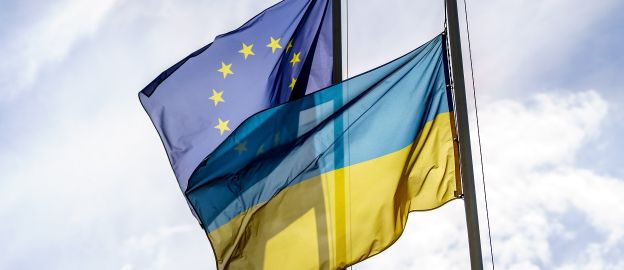
The European Council decided on December 14 to open accession negotiations with Ukraine. In the coming months and years, Ukraine will have to do the arduous, technical work of implementing EU regulations. This includes the energy sector. In the roadmap prepared by the Green Deal Ukraïna project, in which Forum Energii is a partner, we identify the most urgent areas of energy and climate reform for Ukraine and take a closer look at the accession negotiations.
Read More
The Energy and Climate Roadmap. Ukraine towards the EU
The European Council decided on December 14 to open accession negotiations with Ukraine. In the coming months and years, Ukraine will have to do the arduous, technical work of implementing EU regulations. This includes the energy sector. In the roadmap prepared by the Green Deal Ukraïna project, in which Forum Energii is a partner, we identify the most urgent areas of energy and climate reform for Ukraine and take a closer look at the accession negotiations.
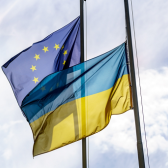
Beyond 60% RES in Poland by 2030 - cooperation between Forum Energii and Enercode

To lead an effective energy transition, you need not only regulations, but also good, modern computing tools. The world is changing rapidly - the winner will be the one who is able to plan strategically, but also react to changes and minimize costs. In order to meet these challenges, the Energy Forum, together with Enercode, has taken on the task of building an open energy model that will support the planning of the modernization of the Polish energy sector, taking into account the acceleration of the development of renewable energy sources.
Read More
Beyond 60% RES in Poland by 2030 - cooperation between Forum Energii and Enercode
To lead an effective energy transition, you need not only regulations, but also good, modern computing tools. The world is changing rapidly - the winner will be the one who is able to plan strategically, but also react to changes and minimize costs. In order to meet these challenges, the Energy Forum, together with Enercode, has taken on the task of building an open energy model that will support the planning of the modernization of the Polish energy sector, taking into account the acceleration of the development of renewable energy sources.

How to escape the household energy price trap?

Household electricity prices in recent months bore little relation to real production costs, were kept artificially low and treated as an interface with voters. State intervention in this area was necessary in 2022 due to unprecedented price increases on the markets. If the price-freezing mechanisms expire as planned at the end of 2023, electricity prices for households could rise by up to 68% in January. The impact of price spikes should be mitigated. We are proposing a package of solutions: an energy voucher, support for distribution tariffs, additional money for improving the energy efficiency of buildings and a special tariff for heating buildings with electricity.
Read More
How to escape the household energy price trap?
Household electricity prices in recent months bore little relation to real production costs, were kept artificially low and treated as an interface with voters. State intervention in this area was necessary in 2022 due to unprecedented price increases on the markets. If the price-freezing mechanisms expire as planned at the end of 2023, electricity prices for households could rise by up to 68% in January. The impact of price spikes should be mitigated. We are proposing a package of solutions: an energy voucher, support for distribution tariffs, additional money for improving the energy efficiency of buildings and a special tariff for heating buildings with electricity.

Anatomy of Dependence: How to Eliminate Rosatom from Europe

EU countries depend on cooperation with Russia in the nuclear field. This has resulted in Rosatom not being sanctioned after the Russian full-scale invasion of Ukraine, and trade in this sector is growing. This situation is disadvantageous for the EU and increases its vulnerability to Russian blackmail. Moreover, it strengthens the Russian military. The EU should increase its efforts to diversify supplies and build its own capabilities in the nuclear sector.
Read More
Anatomy of Dependence: How to Eliminate Rosatom from Europe
EU countries depend on cooperation with Russia in the nuclear field. This has resulted in Rosatom not being sanctioned after the Russian full-scale invasion of Ukraine, and trade in this sector is growing. This situation is disadvantageous for the EU and increases its vulnerability to Russian blackmail. Moreover, it strengthens the Russian military. The EU should increase its efforts to diversify supplies and build its own capabilities in the nuclear sector.

The electricity system needs heating sector
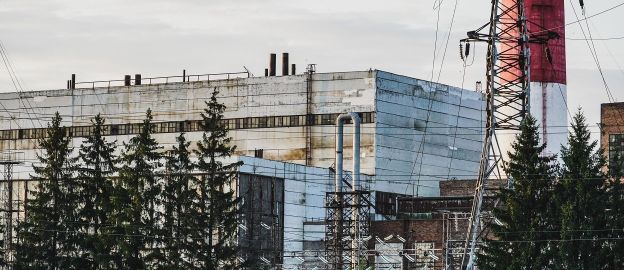
The National Power System (NPS) will face new challenges. These include the uninterrupted supply of energy to consumers when the oldest and most emission-intensive generating units are phased out, but also the efficient use of variable RES sources. District heating may be the key to solving NPS problems. In peak demand of the NPS, additional energy can be provided by cogeneration units, in times of surplus energy in the system - it can be absorbed by electric boilers producing cheap heat. The operation of CHP units can also improve the performance of electricity grids.
Read More
The electricity system needs heating sector
The National Power System (NPS) will face new challenges. These include the uninterrupted supply of energy to consumers when the oldest and most emission-intensive generating units are phased out, but also the efficient use of variable RES sources. District heating may be the key to solving NPS problems. In peak demand of the NPS, additional energy can be provided by cogeneration units, in times of surplus energy in the system - it can be absorbed by electric boilers producing cheap heat. The operation of CHP units can also improve the performance of electricity grids.

Past time for gas?

Over the past two years, natural gas has become a high-risk fuel: it is subject to huge price fluctuations and, following the disruption of supplies from Russia, competition for imports of this resource from other sources is increasing. Not long ago, there were plans in Poland to significantly increase the consumption of natural gas throughout the economy - by 75% by 2035. It was supposed to be a transition fuel.
Read More
Past time for gas?
Over the past two years, natural gas has become a high-risk fuel: it is subject to huge price fluctuations and, following the disruption of supplies from Russia, competition for imports of this resource from other sources is increasing. Not long ago, there were plans in Poland to significantly increase the consumption of natural gas throughout the economy - by 75% by 2035. It was supposed to be a transition fuel.
